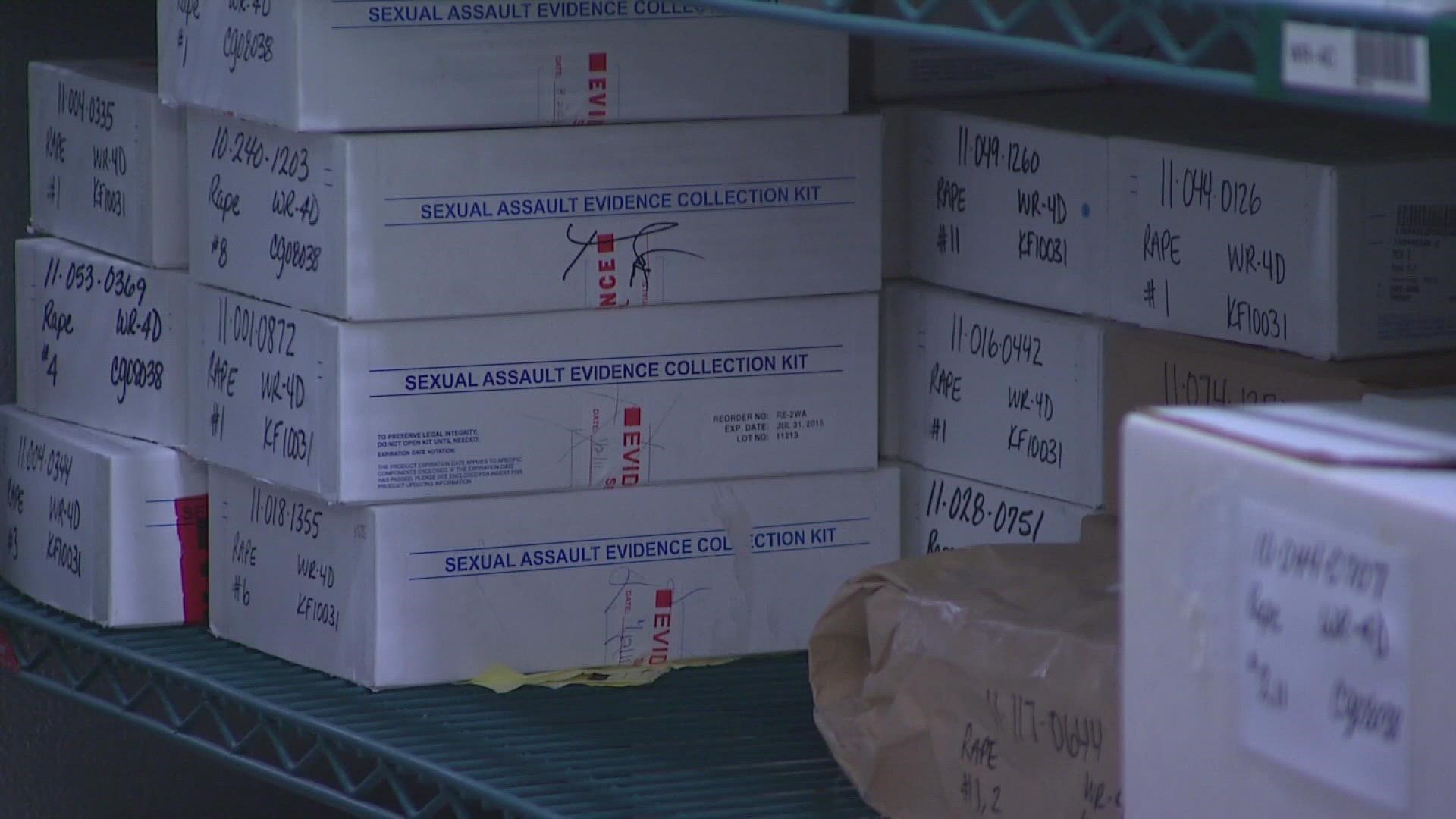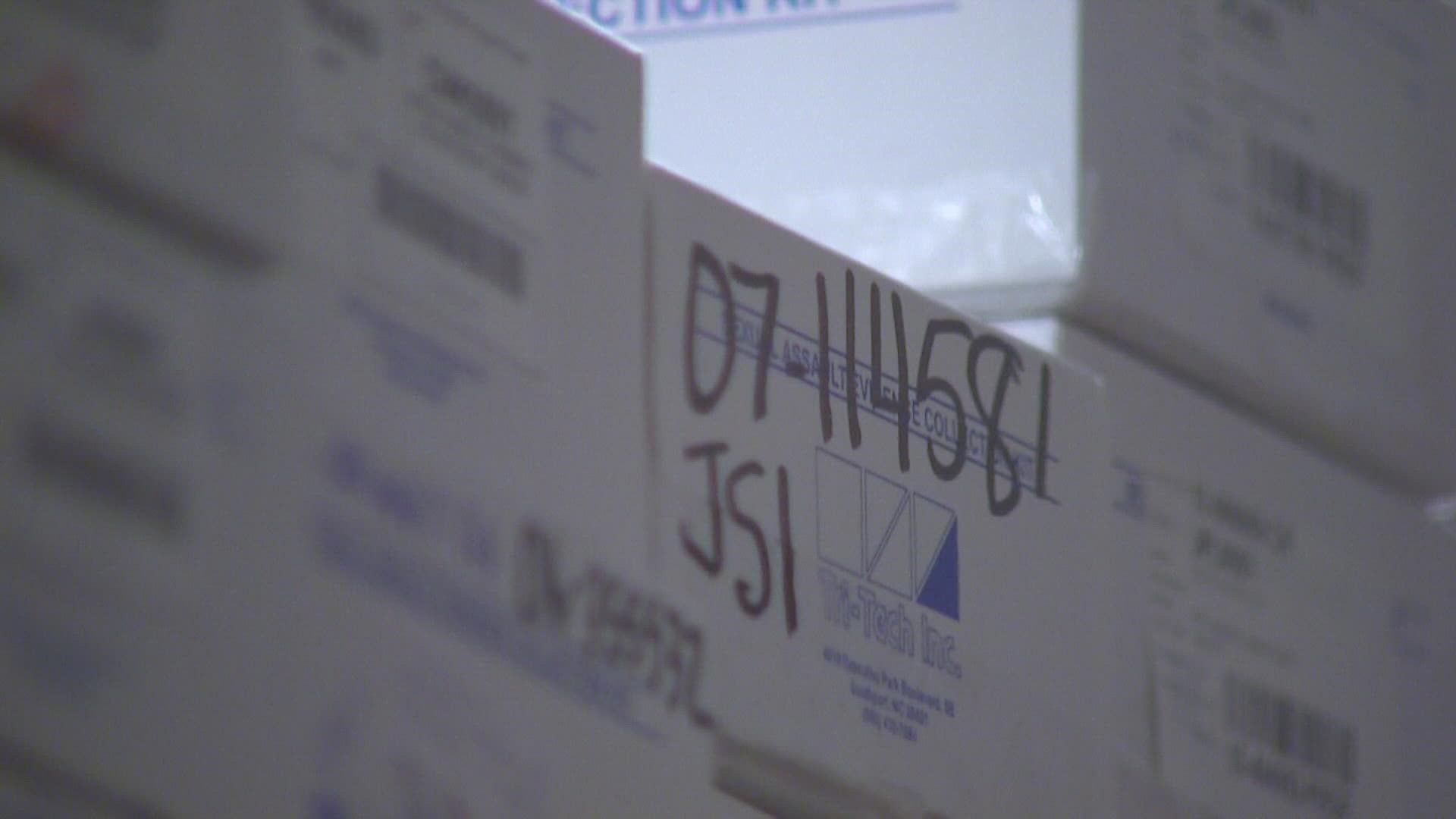SEATTLE — Seattle Police Chief Adrian Diaz said the department's Sexual Assault Unit is about half the size it was just a few years ago, with just five detectives handling all of the cases citywide.
A May 2 internal memo between top brass within the department provided by Seattle police states, "We currently have 6 positions not being actively filled due to absences and personnel shortages," in reference to the Sexual Assault Unit.
The department said that is causing the Sexual Assault Unit to triage more heavily than normal with cases where the suspect is in custody, as well as cases involving children and vulnerable adults taking priority.
When it comes to the sexual assault cases detectives refer to the prosecuting attorney's office, that office provided a graph that shows the number of referrals dropping after 2020.
Advocates for sexual assault survivors are concerned because staffing shortages mean there are cases waiting to be assigned to a detective.
Diaz claimed he is working to provide more resources.
“I have another detective that will be deployed later on this month in June. I have also been cross assigning cases,” explained Diaz. “We have taken some of the sexual assault cases and given it to domestic violence detectives."
Due to staffing shortages, Diaz said the human services department's Victim Support Team is working to contact victims to make sure they are being connected with the resources they need.
The Seattle Police Department has 400 fewer deployable resources than it did four years ago, according to Diaz. An effort to recruit and retain officers is underway, but Diaz said it will take five to 10 years to recover from the huge exodus the department saw in 2020 and 2021.
Riddhi Mukhopadhyay heads the Seattle-based Sexual Violence Law Center, a group that provides legal help for sexual violence survivors. She said a short-staffed Sexual Assault Unit could have far-reaching effects on survivors who may be afraid of coming forward.
“What this does is, it has a trickle effect,” said Mukhopadhyay. “Not only on individual survivors who are coming forward and reporting but other survivors who haven't spoken out or haven't reported yet.”
State Senator and King County Senior Deputy Prosecutor Manka Dhingra said the priority needs to be on people.
“When communities want to feel safe, they're concerned about personal safety; about violence against individuals,” said Dhingra. “That is what needs to be prioritized by law enforcement.”
In a statement, King County Sexual Assault Resource Center CEO Mary Ellen Stone said victims of sexual assault experience a loss of power and control, and only a small portion of victims choose to report their assault to law enforcement.
“When victims are not given basic information about timing, options and next steps in their cases, the system is failing them," said Stone.
Stone questioned what victims gain by reporting their assault if the city lacks the ability to follow through on the investigation.
"If we continue to believe that sexual assault victims should have the opportunity to report to law enforcement about what happened to them, we have an obligation to make it work better for those survivors who put their trust in that system," said Stone.
Stone directed victims to the King County Sexual Assault Resource Center, which provides free, confidential crisis support and comprehensive services to help survivors recover, whether or not they choose to report to law enforcement. Services include a 24-hour Resource Line at 888-998-6423 (888-99-VOICE), legal and general advocacy, trauma-focused therapy and parent/family education.


